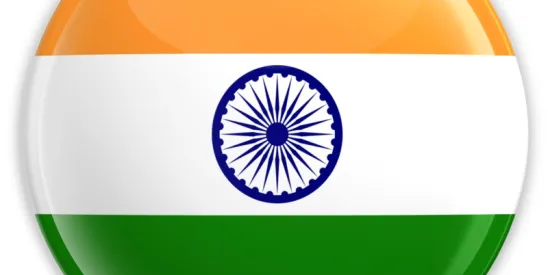Introduction
-
Where there is a split jurisdiction between High Courts exercising original jurisdiction and District Courts based on pecuniary value, such High Courts would be competent to execute a foreign decree of the superior court of a reciprocating territory.
-
By virtue of Section 5(2) of the Delhi High Court Act 1966, the Delhi High Court is vested with ordinary original civil jurisdiction and holds exclusive jurisdiction to execute a foreign decree under Section 44A of the CPC if it falls within its pecuniary jurisdiction.
One of the many concerns which haunts parties in cross-border dispute resolution is locating the jurisdiction and forum for execution of the decree of a foreign court. Section 44A (1) of the Code of Civil Procedure 1908 (“CPC”) provides that “Where a certified copy of a decree of any of the superior Courts of any reciprocating territory has been filed in a District Court, the decree may be executed in India as if it had been passed by the District Court.” While a decree-holder may initiate execution proceedings in a jurisdiction wherethe judgment-debtor or its properties are located, the question remained – would an execution petition be maintainable before High Courts having ordinary original civil jurisdiction or only before the district courts?
Recently, the Hon’ble Supreme Court of India (“Supreme Court”), in the case of Messer Griesheim GmbH (now Air Liquide Deutschland GmbH) (“Appellant”) v. Goyal MG Gases Pvt. Ltd. (“Respondent”) 1 , clarified that a High Court with original civil jurisdiction can entertain a petition for execution of a foreign decree under Section 44A of the Civil Procedure Code, 1908 (“CPC”), provided it is within its pecuniary jurisdiction. The Supreme Court arrived at this conclusion by holding that the definition of District Court under Section 2(4) of the CPC would include High Courts having original jurisdiction.
This gained significance in view of certain High Courts having ordinary original civil jurisdiction. Ordinary original civil jurisdiction of a court is when it has the power to hear a fresh case. In India, five High Courts (i.e., High Courts of Delhi, Bombay, Calcutta, Madras and Himachal Pradesh) have original jurisdiction in civil cases of certain monetary value. For example, the Delhi High Court can exercise original civil jurisdiction with respect to Delhi, in every suit where the value exceeds rupees two crores. 2 In other jurisdictions, it is the district court which has original jurisdiction in all civil suits.
Background
The Appellant had initiated proceedings against the Respondent before the High Court of Justice, Queen’s Bench Division, Commercial Court of the United Kingdom (“English High Court”) for a money decree. The Appellant was awarded a decree for a principal sum of US $ 5.8 million (appx.) on 07 February 2006. The English High Court had been notified as a superior court of a reciprocating territory for the purpose of execution of foreign decrees in India under Section 44A of the CPC. Since the decretal amount fell within the pecuniary jurisdiction of the Delhi High Court, 3 the Appellant filed an execution petition under Section 44A of the CPC before the Delhi High Court on 27 April 2006.
The Respondent raised an objection that the Delhi High Court does not have jurisdiction to entertain the execution petition in view of Section 44A of the CPC. It was the Respondent’s case that Section 44A(1) of the CPC refers to “District Court”; therefore, only the district court(s) in Delhi would have jurisdiction over the execution petition and not the Delhi High Court. Distinguishing suits from execution proceedings, the Respondent argued that Section 5(2) of Delhi High Court Act 1966 refers to ‘suit’; therefore, the High Court would be a principal civil court only for suits exceeding the pecuniary limit and not for any other purpose.
The Single Judge of the Delhi High Court rejected such objections and upheld the jurisdiction of the Delhi High Court. On appeal, the division bench of the Delhi High Court (“Division Bench”) overruled the Single Judge’s judgment and observed that Section 44A of the CPC was an independent right conferred on the decree-holder/Appellant for enforcement of a foreign decree in India. It is a fresh cause of action and has no co-relation with jurisdictional issues. It further held that the Delhi High Court was not a ‘District Court’ in terms of Section 44A of the CPC.
Decision of The Supreme Court
The issue before the Supreme Court was - whether the Delhi High Court in exercise of its original jurisdiction was a competent court to entertain a petition for executing a money decree (in excess of INR 20,00,000/-) of a foreign court which is notified as a ‘superior court’ of reciprocating territory under Section 44A of the CPC.
The Supreme Court referred to the definition of ‘District Court’ under Section 2(4) of the CPC which “refers to the local limits of the jurisdiction of a principal civil Court of original jurisdiction (provisions of the Code called a “District Court”) and it includes the local limits of the ordinary original civil jurisdiction of a High Court.” It observed that in cases where there is a split jurisdiction between High Courts exercising original jurisdiction and District Courts based on pecuniary value, such High Courts would be competent to execute a foreign decree of the superior court of a reciprocating territory. While exercising such power, the conditions under Section 44A of CPC would have to be satisfied in addition to the fact that the underlying decree
exceeds the pecuniary limits of the district court.
Coming to the issue at hand, the Supreme Court set aside the judgment of the Division Bench and observed that execution is always in continuation of the proceedings. In view of Section 5(2) of the Delhi High Court Act 1966, the Delhi High Court is vested with ordinary original civil jurisdiction and holds exclusive jurisdiction to execute a foreign decree under Section 44A of the CPC if it falls within its pecuniary jurisdiction.
Conclusion
This judgment settles the law on the exercise of original jurisdiction of a High Court for execution of a foreign decree and will prevent the decree holders from waiting for exceedingly long periods to avail the reliefs which they are entitled to.
This judgment is in line with the findings of the High Court in a catena of cases. The Delhi High Court has itself confirmed on multiple occasions that it would be considered the principal civil court of original jurisdiction with respect to any suit whose value falls within its pecuniary jurisdiction, and not the district courts in Delhi.4 Specifically with respect to execution of foreign decrees under Section 44A of the CPC, the High Courts of Madras and Bombay have been of the view that the respective High Courts having ordinary original civil jurisdiction would be deemed to be a District Court.5
Further, statutes such as the Commercial Courts Act 2015 and Arbitration and Conciliation Act 1996 also carve out specific provisions for High Courts having original jurisdiction.6
Therefore, a contrary finding would have resulted in an erratic and anomalous situation where High Courts with original civil jurisdiction exercise such jurisdiction for all matters which meet the pecuniary limits except execution of foreign decrees. With this judgment, the Supreme Court has also prevented a situation where foreign awards are executed by High Courts having original civil jurisdiction, while foreign decrees are not .
FOOTNOTES
1 Messer Griesheim Gmbh v. Goyal Mg Gases Pvt. Ltd., 2022 SCC OnLine SC 97
2 Delhi High Court Act 1966, s 5(2) amended by Delhi High Court (Amendment) Act, 2015, s 2:
“Notwithstanding anything contained in any law for the time being in force, the High Court of Delhi shall also have in respect of the said territories
ordinary original civil jurisdiction in every suit the value of which exceeds rupees two crores.”
3 As on the date of filing of the execution petition, the pecuniary limit of the Delhi High Court was INR 20,00,000/-.
4 Bakshi Lochan Singh v. Jathedar Santokh Singh AIR 1971 Delhi 277; Subhashini Malik v. S.K. Gandhi & Ors. (2016) 233 DLT 83; Oakwell
Engineering Ltd. v. Enernorth Industries Inc., 2006 VII AD (Delhi) 863; Arjan Singh v. Union of India ILR 1973 Delhi 933.
5 BMIC Limited v. Chinnakannan Sivasankaran (insolvent) rep. by Official Receiver and Ors. 2016 SCC OnLine Mad 32003; Janardhan Mohandas
Rajan Pillai and another v. Madhubhai Patel and others AIR 2003 Bom 490
6 Commercial Courts Act 2015, ss 3, 4, 7, 10; Arbitration and Conciliation Act 1996, s 2(1)(e).



 />i
/>i


